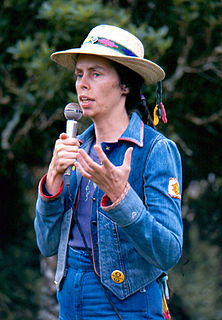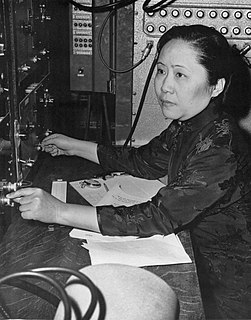A Quote by Ina May Gaskin
The way a culture treats women in birth is a good indicator of how well women and their contributions to society are valued and honored.
Related Quotes
Fathers' sharing in the birth experience can be a stimulus for men's freedom to nurture, and a sign of changing relationships between men and women. In the same way, women's freedom to give birth at home is a political decision, an assertion of determination to reclaim the experience of birth. Birth at home is about changing society.
Marjan. I have told him tales of good women and bad women, strong women and weak women, shy women and bold women, clever women and stupid women, honest women and women who betray. I'm hoping that, by living inside their skins while he hears their stories, he'll understand over time that women are not all this way or that way. I'm hoping he'll look at women as he does at men-that you must judge each of us on her own merits, and not condemn us or exalt us only because we belong to a particular sex.
Man treats woman as his own property and not as being capable of feelings, like himself. The way man treats women is much worse than the way landlords treat servants and the high-caste treat the low-caste. These treat them so demeaningly only in situations mutually affecting them; but men treat cruelly and as slaves, from their birth till death.
Our culture is set up on a feud mentality, or a "Housewives" mentality, that women just fight. And it's such a shallow way to exist as far as our evolution is concerned, and our culture is concerned. It's fun to watch women fight, in a storytelling way, but in the world, women shouldn't be seen as a threat to other women.
It is shameful that there are so few women in science. [...] In China there are many, many women in physics. There is a misconception in America that women scientists are all dowdy spinsters. This is the fault of men. In Chinese society, a woman is valued for what she is, and men encourage her to accomplishments yet she remains eternally feminine.


































